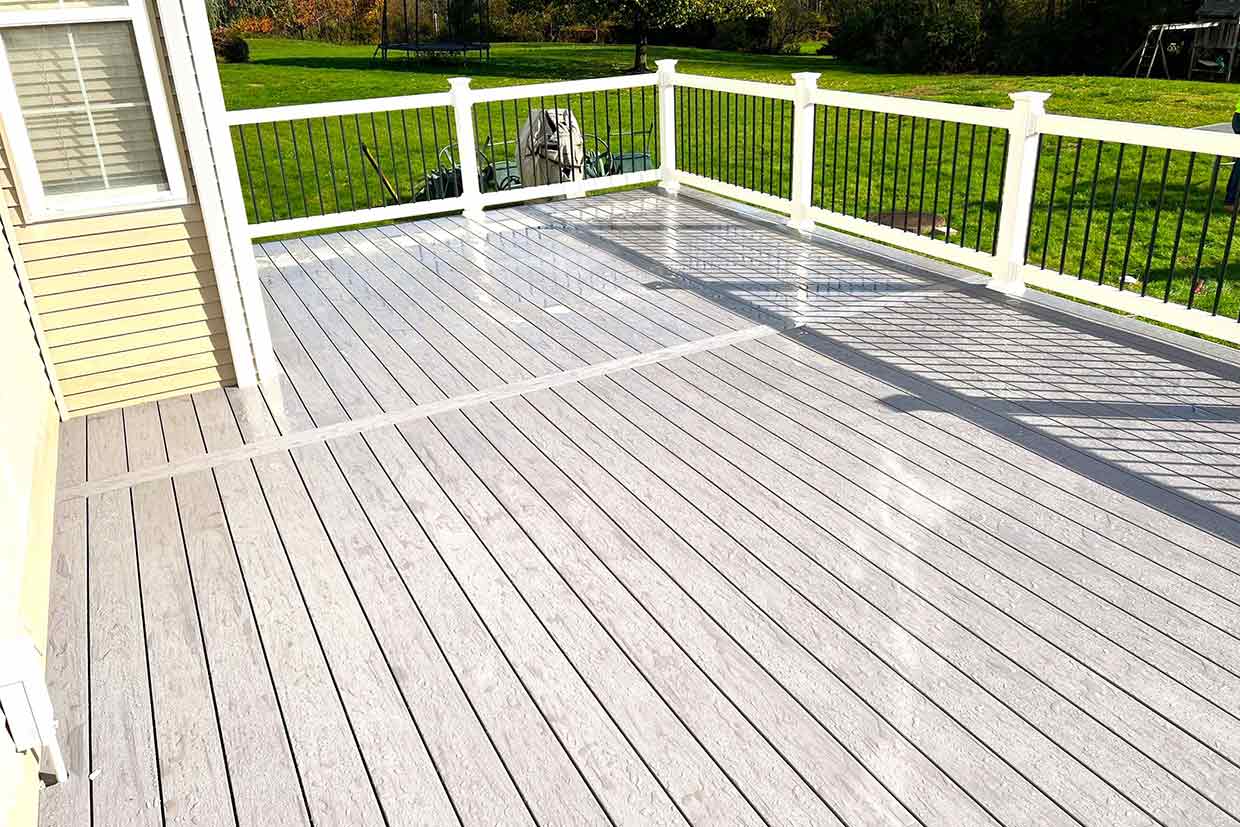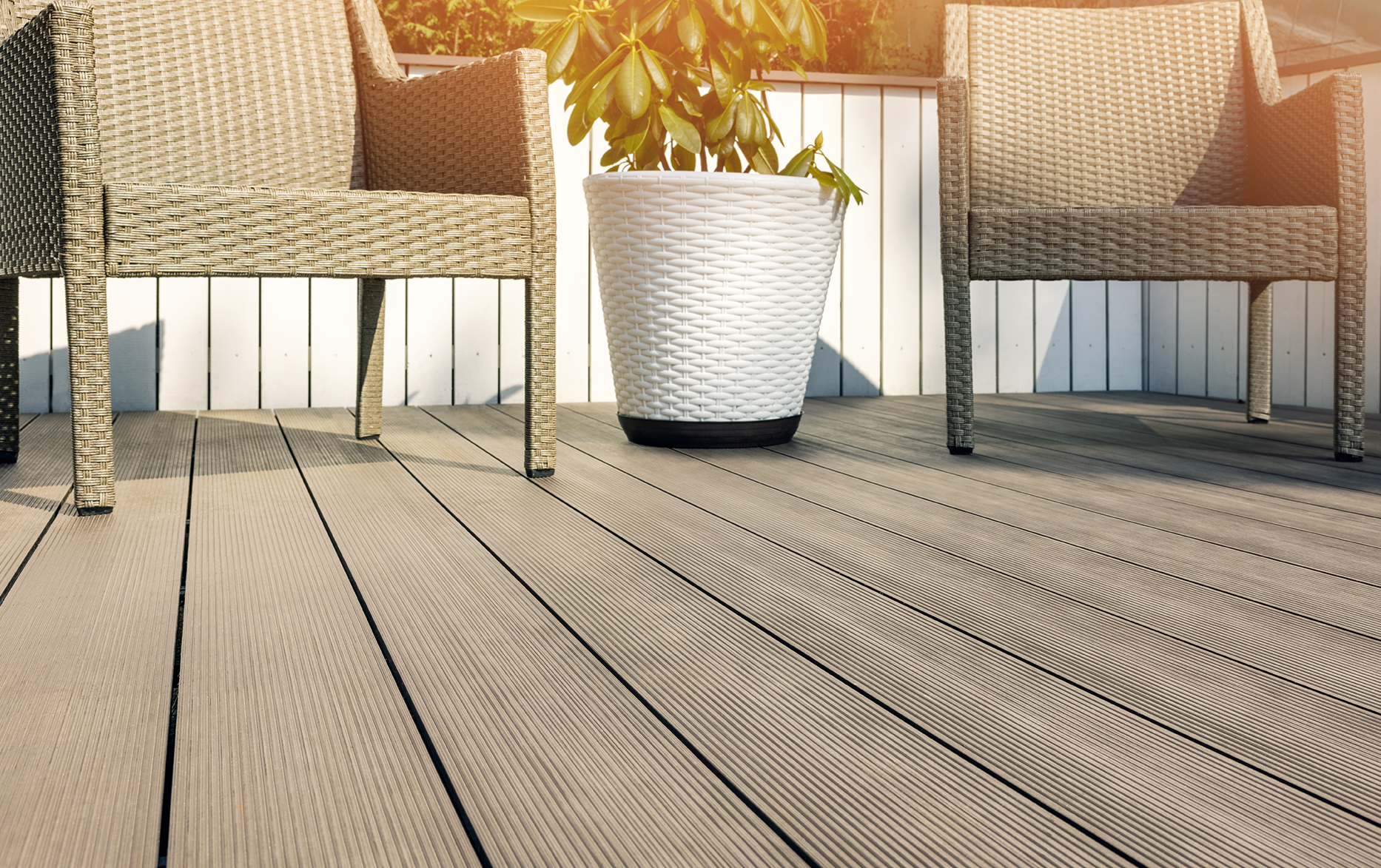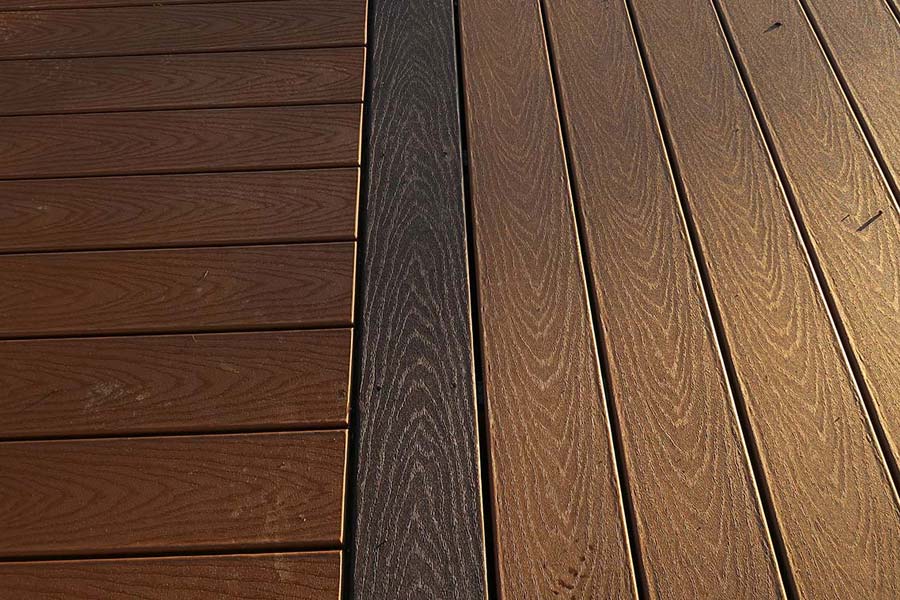Trex Decking: Eco-Friendly Options for a Sustainable Deck
Trex Decking: Eco-Friendly Options for a Sustainable Deck
Blog Article
Discover the Ultimate Guide to Selecting the Ideal Decking Products
Choosing the most appropriate decking products is an important decision for any individual looking to improve their outdoor living room. From all-natural timber to composite options, the landscape of outdoor decking products can be both vast and overwhelming.
Sorts Of Decking Materials
When thinking about sorts of outdoor decking products, it is important to evaluate the toughness, upkeep needs, and aesthetic allure of each option. One preferred option is pressure-treated timber, which is economical and very easy to deal with. Nonetheless, it needs normal upkeep to stop rot, splintering, and fading.

For a lavish look, wood outdoor decking such as ipe or mahogany supplies unmatched charm and sturdiness. Trex Decking. These unique woods are naturally immune to rot and insects, but they include a greater cost tag and might call for routine securing to preserve their abundant color
If sustainability is a top priority, consider bamboo decking. This eco-friendly choice is extremely strong and long lasting, comparable to hardwoods, but with a smaller sized ecological effect. Whichever product you choose, guarantee it aligns with your concerns for long life, maintenance, and appearance.
Factors to Consider
To pick the optimum outdoor decking product for your task, it is critical to thoroughly think about numerous variables that encompass durability, maintenance requirements, and total visual appeal. Upkeep demands also differ among decking products. Some alternatives, like composite outdoor decking, need marginal maintenance, while wood decking may require normal staining or sealing to avoid damage.

Advantages And Disadvantages
Taking into consideration the benefits and downsides of different decking materials is essential in making a notified choice for your project. When it involves timber outdoor decking, its all-natural aesthetic appeals and heat are indisputable advantages. Nevertheless, timber needs regular upkeep to stop rot, splintering, and insect damage. On the other hand, composite outdoor decking offers low upkeep and high sturdiness, but it can be extra costly upfront. PVC outdoor decking is another low-maintenance option that is resistant to wetness, rot, and insects, however it often tends to be one of the most costly selection. Aluminum decking supplies extraordinary durability and is immune to rot, mold, and insects, yet it can be loud and may obtain warm in straight sunshine. Last but useful source not least, while tropical hardwood outdoor decking deals unrivaled appeal and long life, it includes a high price and might not be sustainably sourced. By considering these pros and cons, you can choose the decking material that ideal fits your requirements and preferences.
Maintenance Tips
Ensuring regular maintenance of your decking products is critical the original source in protecting their appearance and durability. Various decking products need specific upkeep routines to maintain them in ideal condition.
Composite decking, on the other hand, is usually reduced upkeep yet benefits from regular cleansing to avoid the build-up of dirt and particles. A gentle scrub with soapy water and a soft brush can help preserve the vibrancy of the boards. Prevent using extreme chemicals or pressure washing machines, as these can harm the composite product.
Picking the Right Material
Selecting the suitable decking product is an important decision that dramatically impacts the durability and appearances of your outside space. With a variety of options available, it's necessary to think about aspects such as maintenance requirements, durability, eco-friendliness, and overall appearance when picking the right product for your deck.

For ecologically conscious home owners, options like bamboo or recycled imp source plastic lumber offer lasting options that lower reliance on virgin timber. Ultimately, the finest outdoor decking product for you will certainly rely on your spending plan, wanted upkeep level, and aesthetic preferences. Make the effort to research study and contrast different materials to make an educated choice that will certainly improve your outdoor living room for many years to find.
Final Thought
To conclude, choosing the best outdoor decking product requires mindful consideration of elements such as resilience, price, upkeep, and visual charm. By examining the pros and cons of each material kind, home owners can make an informed decision that fits their needs and budget. Routine maintenance and appropriate treatment are important to prolong the life-span of the decking, despite the material picked. Inevitably, choosing the right decking product can boost the total look and capability of exterior spaces.
Report this page